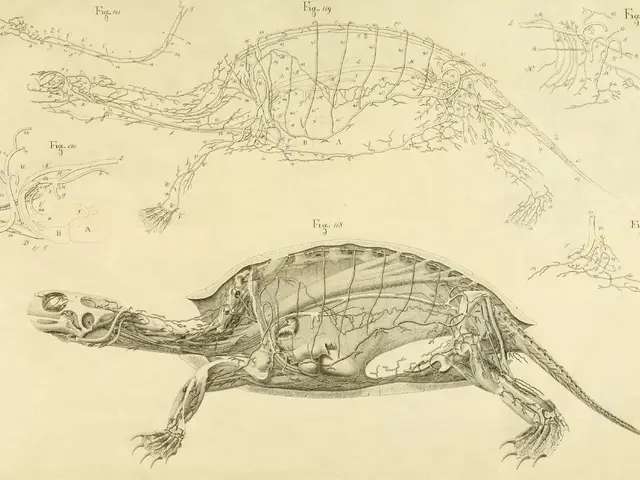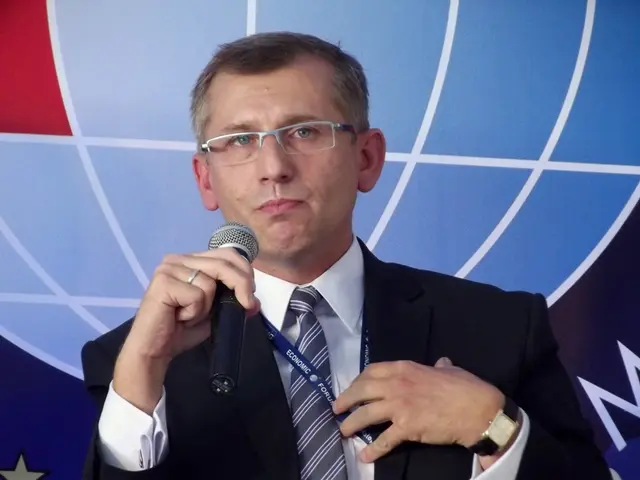Artificial Intelligence Agent in Development by MTS Web Services
In the picturesque city of Pétropavlovsk-Kamchatsky, the MWS Agent system is making a significant impact, revolutionizing various sectors from finance to travel planning. This advanced AI technology is not limited to mere data analysis but can also generate code, reason logically, and conduct web research.
The MWS Agent system, designed for adaptability and autonomy, is expected to adjust its behavior as needed and analyze large volumes of data without human intervention. It can even understand the context of a task, make decisions based on current data, and take actions in the interface – a feature that sets it apart from LLM models.
AI agents are already making waves in IT, agriculture, mining, transportation, logistics, retail, and oil refining, and their presence is set to expand across diverse industries by 2027. Russia's focus is on security, healthcare, industrial applications, and education, supported by growing infrastructure and regulatory frameworks.
In the realm of airport security, AI-powered systems like those developed by Ntechlab are being integrated. These AI agents perform real-time analysis of surveillance, detecting security threats, monitoring unauthorized movements, and managing crowd control during peak travel times.
The healthcare sector is also embracing AI, with AI agents already being used in organ diagnostics based on medical imaging, as implemented by research centers such as the University of Innopolis. This marks the beginning of a continued expansion into healthcare applications involving AI-driven image analysis and diagnostics.
Industrial applications are another area where AI systems customized for various enterprises are in use. The development of low-code and no-code AI platforms is expected to make AI deployment more accessible to specialists without advanced programming skills, thereby enhancing adoption in industry.
Education is another key area of focus, with Russia significantly investing in AI education and skill development. Universities and federal programs are developing specialized AI curricula emphasizing modern AI trends like transformers, generative models, and multimodal systems.
Ideologically aligned AI is another predicted development, with Russia and Belarus collaborating to develop AI systems grounded in "traditional values," aiming for sovereign and trusted AI models that provide objective information free from foreign ideological influence.
By 2027, up to 50% of Russian companies are forecasted to start using generative AI and AI agents. The MWS Agent system, with its modular approach ensuring high accuracy of solutions and scalability for implementation in different business scenarios, is expected to play a significant role in this transition.
The MWS Agent system's first product launches using GenAI in 2024 have already secured 670 million rubles in annual revenue. Pavel Voronin, General Director of MTS Web Services, commented that AI agents are a source of sustainable growth for companies, helping to optimize costs, increase revenue, and ease employee workload.
The system's orchestrator, the LLM orchestrator - MWS GPT, plays a crucial role, receiving and analyzing natural language requests, before distributing the tasks among specialized agents designed for specific types of tasks.
In conclusion, by 2027, Russia’s AI agents will be embedded not only in security and healthcare but also across industries enabled by universal low-code AI tools. The government and private sectors are actively crafting ecosystems – technical, educational, and regulatory – that promote AI adoption while aligning it with national values and priorities.
The MWS Agent system, anticipated to play a significant role in the 2027 transition of up to 50% of Russian companies using generative AI and AI agents, is also expected to expand its presence beyond the current sectors of finance, travel planning, and airport security. It may venture into artificial-intelligence-driven technology, such as artificial-intelligence agents being used in the healthcare sector for organ diagnostics based on medical imaging.
By 2027, artificial-intelligence technology is set to expand its horizons across diverse industries, including agriculture, mining, transportation, logistics, retail, and oil refining, as well as in education and industrial applications. It's a testament to the boundless potential of technology and artificial-intelligence in revolutionizing various sectors and reshaping our future.




